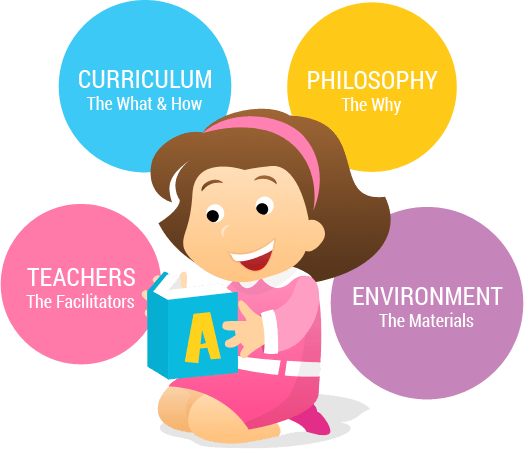
The Pelican Play School
Preschool education is not just about art, music, dance, fun and fantasy. A good preschool program ensures setting comprehensive learning objectives and having a structured way to achieve these goals in the child considering that every child is special, different and an individual in his/her own right. A quality preschool program revolves around the child. The 4 major components that are instrumental in shaping the learning of the child in school are:
- the philosophy
- the curriculum and methodology
- the learning tools offered to the child
- the teachers who facilitate learning
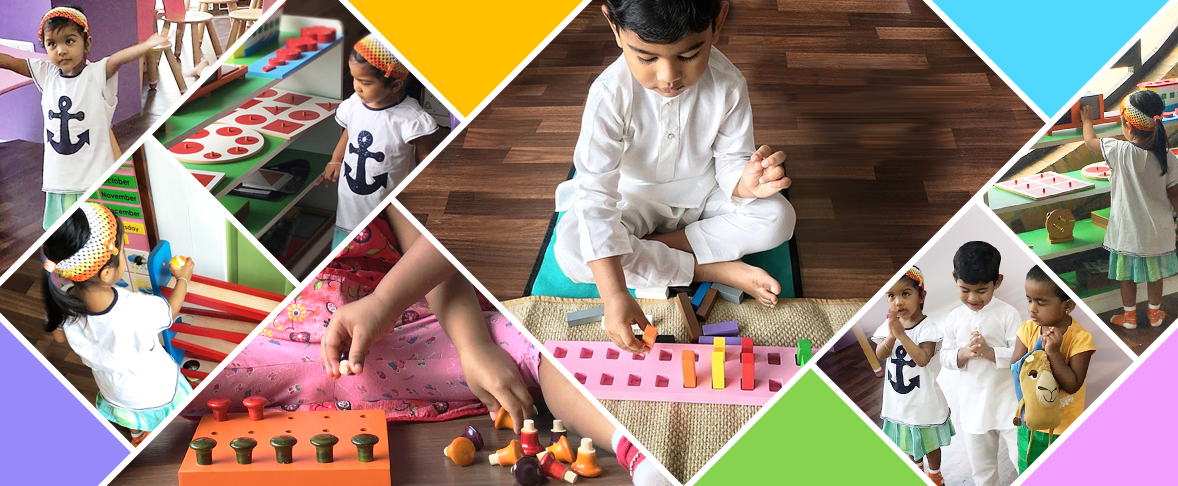
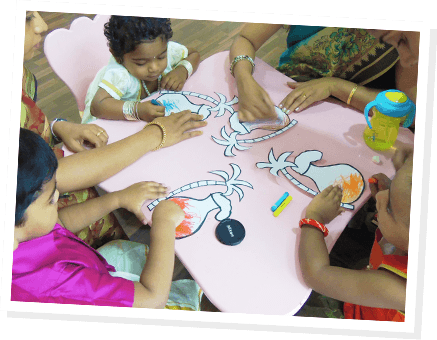
We are tightly integrating these 4 components in a way that will have the most beneficial impact on the development of the child. The core philosophy inspired by the Montessori method drives the curriculum, the curriculum is the foundation for the tools / materials used in the preschool. Each material has been designed and manufactured keeping in mind the curriculum objectives and the philosophy. The teachers have been trained intensively on the philosophy, curriculum and the materials. So all the 4 components are interwoven and this results in an Early Learning program that will aid in building adults who are not only academically equipped, but also socially adopt & clear thinking individuals.
The Philosophy
A child with a purpose knowing what he wants to do next and is able to do it is the happiest. Out of this joy comes self-confidence & willingness to work. If such a child is equipped with the right tools, there is no stopping his way to excellence.
Research proves that Early Education is critical because:
- Brain development is most rapid in the early years
- 75% of neural connectivity is complete by the age of 7
- When the quality of stimulation is deficient, child development is seriously affected.
Early years (2 to 6) is a unique stage of phenomenal brain development and learning in a child. The capacity to absorb concepts and learn is highest during this phase. Hence it is important to expose the child to a structured environment which will provide adequate and appropriate stimulus for learning.
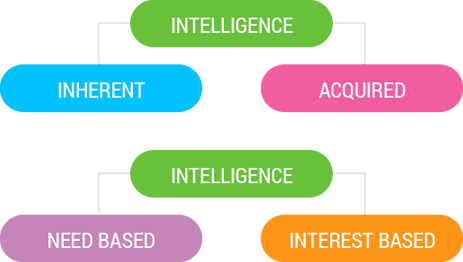
Every child has an inherent nature and intelligence that is peculiar to him. This varies from child to child and is the most important factor to consider when the child comes to school.
The Environment

For a child below 6, curriculum comprises the environment which in turn means the tools that we offer the child to learn. It is essential that a young child gets daily experience with learning aids which have specific usage, derived from the curriculum.
All areas of work for the child, both internal and external have been planned with extreme care to facilitate self learning, and implement the objectives set in the curriculum.
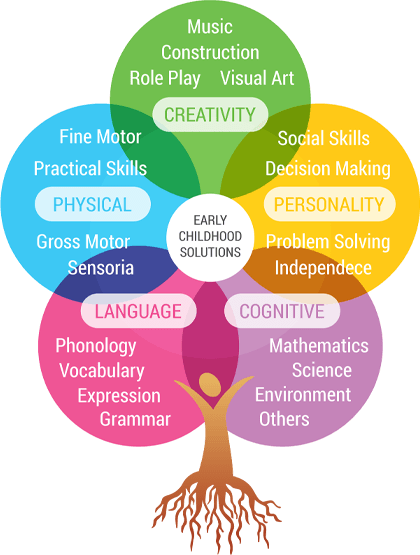
The curriculum
Is focused on the following areas of development:
Physical, Creative, Intellectual, Socio-Emotional and Language
Curriculum is the set of experiences, activities and events, direct or indirect which occur in an environment specially planned to foster children's learning and development. In simple terms, Curriculum is a plan for learning.
Our curriculum is a comprehensive child-centric curriculum that comes with set objectives in all major areas of development. It is related to the child's developmental readiness, interests, questions, style of learning and the cultural context in which the child finds himself.
The Teachers
Our staff is trained to ensure that the curriculum objectives for each child are met consistently without creating any disturbance in the child's work or thought process. They are trained to facilitate learning, observe, record and assess on a daily basis. We have an appropriate student teacher ratio to ensure that every child's needs are met without making him excessively dependent on an adult for learning.
Methodology
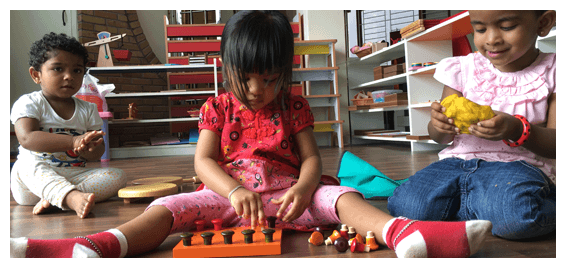
Learning Modes
We believe preschool education should give as much exposure as possible to the child in all areas of development. Appropriate stimulus is the key to early learning. Hence, the activities have been designed keeping the child in mind and ensuring there is “directional” play all the time. It would involve
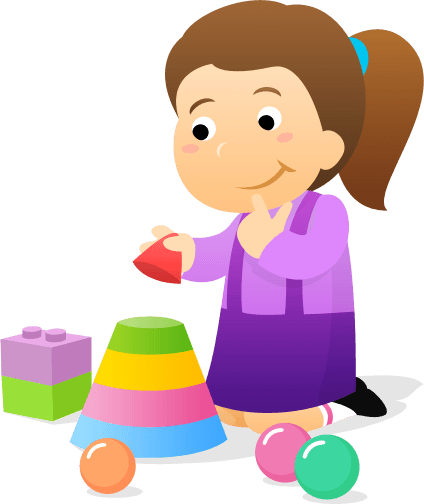
- Individual learning with materials
- Small group activities in art, language and gross motor skills
- Learning through a thematic approach
- Occasional support learning through role plays, presentations, story telling
- Reading
- Field trips
- Project based learning for older children
- Cultural celebrations
We believe the child's home environment plays a very important role in early learning and shaping the child's personality. Keeping this in mind, we will have several parent feedback sessions and guidelines that can be followed in the house to ensure that the school and home together foster the child's development.
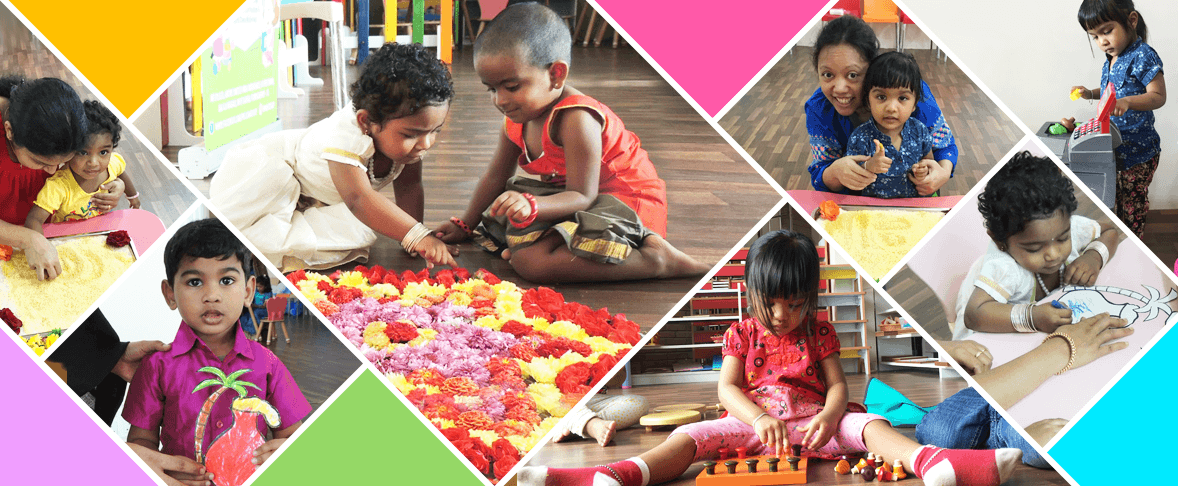
Cognitive / Academic
In order to meet our curriculum objectives, we take the children through a structured learning program for 4 years, which involves a lot of structured and focused activities. No activity in the school is meaningless or done without a clear cut objective and outcome for the child.
In the 2 to 4 years category, we begin with fine motor and practical life skills. English is introduced with phonetics. Mathematics is introduced with materials that help the child comprehend this very abstract area.
There are also a variety of activities that aid cognitive development and logical thinking. In the 4 to 6 age group, children are taken through a program that covers fairly complex areas of language, mathematics, geography, history and science in a manner that will help them explore, discover and understand
the fundamentals.
Assessment
Development in early years happens at a phenomenal speed and is constantly varying. Hence, assessment in early years has to be a continuous process. We have a system that constantly checks on the child's progress and helps us keep updates and records about the child more efficiently. This helps us share information with parents also on a regular basis. Constant assessment keeps the teachers completely keyed in with the progress of the child which enables us to keep challenging the child and hence we can avoid a situation where the child is bored or has lost interest.
Purpose of Education
Aid the children in becoming independent thinkers and doers,
in other words enhance skills that will make them excel at whatever they do!! Create a social awareness so the world can be a better place to live in, in other words foster social skills & values that will make them good human beings!!
Quality Early Education is a necessity for every child
Critical Non Academic
The curriculum provides many opportunities for children to make choices and decisions about their work. Children have the choice to work in small groups/ individually depending on their needs at different times.
During the course of working through the day, we constantly create opportunities for children to develop their language skills as well as focus on their emotional development. We encourage them to receive help from and offer help to other children, thus inculcating a sense of social awareness.
We also lay emphasis on creating environmental awareness and help them develop practical skills like cutting, sieving and gardening. We also offer ample activities for development in the areas of art.
Physical development is not just about running around or cycling, it is taken very seriously and there are a series of activities that are designed keeping in mind the age and growth of the child.
What Differentiates us?
- Child centric approach rather than teacher centric
- Strong Montessori based philosophy & method also incorporating best practices from other early childhood philosophies
- Strong focus on a structured curriculum
- Comprehensive set of objectives for the overall development of the child
- Materials and tools for learning designed for the curriculum
- A methodology that instills a sense of purpose & interest to work hard in the child
- Revolutionary assessment technique
- A structured learning program for the overall development of the child
- Tight integration between curriculum objectives, materials, activities, teacher training & assessment ensuring there is no disconnect
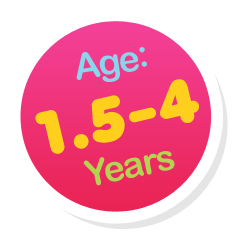
We have a clear curriculum, learning plan for every child.
Our curriculum is not based on the academic year but based on age group.



